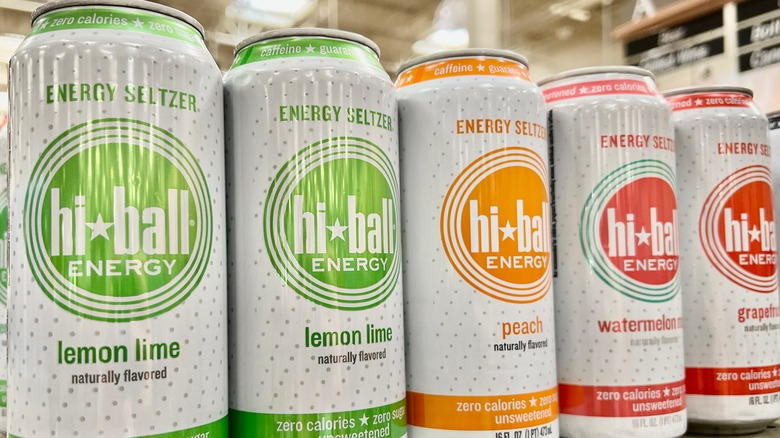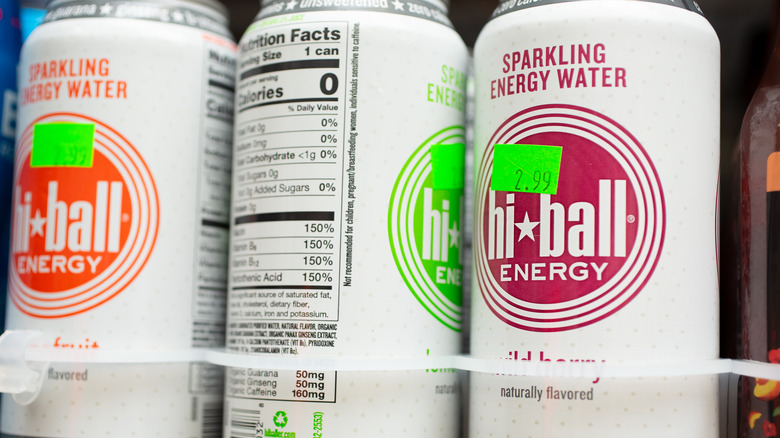Are Hiball Energy Drinks Good For You?
For carbonation lovers everywhere, Hiball energy drinks offer a different kind of taste and texture. Closer to a seltzer than the standard texture of most energy drinks, Hiball classifies itself as "sparkling energy water." For those looking to keep their energy drinks tasting light and breezy, these fruity flavored beverages will likely hit the spot.
The main word associated with Hiball energy drinks is "organic." Hiball prides itself on its use of natural ingredients. Contained within each of their single 16-ounce cans is organic caffeine, organic ginseng, organic guarana, and a number of B vitamins. In addition, Hiball contains no sugar, fat, sodium, or calories (via Eat This, Not That). Even better, their list of sweet flavors covers everything from lemon lime to grapefruit to peach to vanilla.
A can of Hiball sparkling energy water contains 160 milligrams of caffeine, earning them the status of "very high" in Caffeine Informer's caffeine strength ranking system. Overall, though, their caffeine content ranks lower than some other brands of energy drinks, which can contain anywhere from 200 to 300 milligrams of caffeine. It sounds like Hiball checks all the boxes: natural, organic, and delicious, but do experts agree? Are there any ingredients in Hiball energy drinks associated with negative side effects?
Hiball uses a different form of caffeine
Ingesting too much caffeine can lead to side effects such as decreased quality of sleep, nervousness, headaches, rapid heartbeat, and muscle tremors (via Mayo Clinic). For this reason, it's important to consume caffeine in moderation and be mindful of the U.S. Food and Drug Administration's daily recommended caffeine limit of 400 milligrams when considering popping open another can of Hiball.
The good news, however, is that Hiball avoids using synthetic caffeine — the presence of which will often mark the difference between an artificial energy drink and an organic one (via Proper Wild). While cheaper, the effects of synthetic caffeine are often felt much more quickly than organic caffeine, as synthetic caffeine is absorbed into the body at a faster rate. Through the use of organic caffeine, Hiball avoids shocking the system with too much energy all at once and is less likely to evoke negative side effects.
Overall, Hiball ranks as a healthier, keto-friendly choice among the best energy drinks of 2021. Registered dietitian for Eat Clean Bro Hillary Cecere told Eat This, Not That, "I think it's a good choice if you are having an energy drink, but beware that with 160 milligrams of caffeine and herbs, there is always a chance of an adverse reaction. I do think it's great that the caffeine is not synthetic caffeine."

